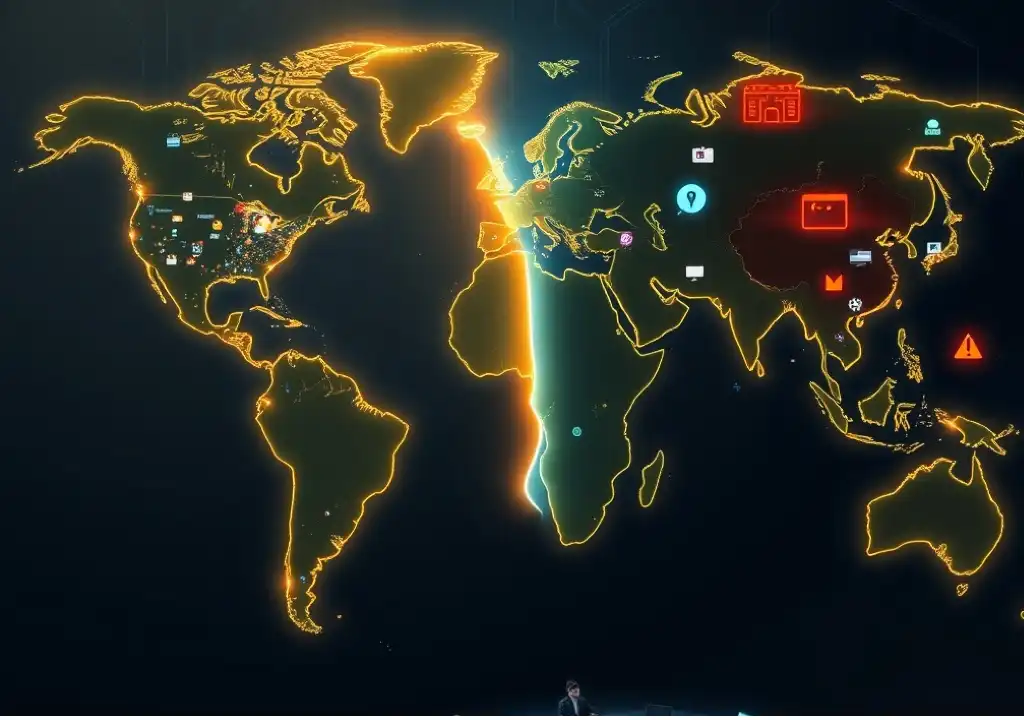Growing Push for Sovereign Internet Control Threatens Global Connectivity
The debate over who controls the internet continues to intensify. In truth, no single entity owns it—it’s a vast network composed of smaller networks operated by different organizations across countries, each subject to local laws. But without shared standards and protocols, this global system risks fragmentation, which could mark the end of the internet as we know it.
Fragmentation is more than theoretical. According to the Global Commission on Internet Governance, chaired by former Swedish Prime Minister Carl Bildt, a fractured “splinternet” could be devastating. In 2016 alone, the internet contributed up to $4.2 trillion to global GDP. But splintering would reduce this benefit dramatically.
Nearly half the world’s population is now online, and within five years, another billion users and 20 billion devices are expected to be connected. However, future expansion isn’t guaranteed. The commission warned that rising cybercrime, increasing government surveillance, and excessive political control could erode public trust and shrink internet usage.
Rising Threats and Cybercrime
Cybercrime already costs the global economy an estimated $445 billion annually and may grow significantly. With more items—from cars to medical implants—connected to the internet, there’s growing concern that the “internet of things” could become the “weaponisation of everything.” Massive cyberattacks, such as those targeting power grids in Ukraine, and widespread privacy abuses by corporations and states, only increase this insecurity.
The commission outlined a scenario of “stunted growth,” where the benefits of the internet are unevenly distributed. Billions remain offline, and many connected users face trade restrictions, censorship, and data-localization laws that limit access to digital services and free expression.
Fragmentation and Sovereignty
Sovereign control of the internet is on the rise. Countries like China, home to the largest internet population, maintain tight control through mechanisms like the “Great Firewall.” Many regimes block content and services they deem politically dangerous, contributing to a fragmented global network. This trend could cost over 1 percent of global GDP annually while curbing free speech, access to information, and privacy rights.
If this trajectory continues, the world could settle into a splintered, semi-functional internet. This would leave many users behind and diminish the global value of digital connectivity.
A Path Toward Sustainable Growth
In a more optimistic outlook, the commission envisioned a robust, open internet driving innovation and growth. Over the past two decades, the digital revolution has fueled roughly 8 percent of global GDP and brought online access to three billion people, helping bridge various social and economic divides.
With the internet of things potentially adding $11 trillion to GDP by 2025, the commission emphasized the need for open standards, digital literacy, resilient system design, and strong security practices. They also advised against weakening encryption or launching cyberattacks on core internet infrastructure. Governments should enforce liability and ensure transparent reporting of technological failures to support a more secure digital ecosystem.
Debating Internet Governance
Historically, internet governance debates have revolved around three primary models. The multi-stakeholder model—rooted in the internet’s early development—emphasizes technical input but lacks broad international legitimacy. A second model favors the UN’s International Telecommunications Union, which offers legitimacy but less efficiency. A third, led by authoritarian governments like Russia and China, advocates for treaties that enshrine state control.
Recently, a hybrid “fourth model” has gained traction. It broadens multi-stakeholder engagement by actively including tech experts, corporations, governments, and civil society in international decision-making.
A Shift in Oversight
One significant milestone in this evolution was the US Commerce Department’s transfer of the IANA functions—essentially the internet’s address book—to the Internet Corporation for Assigned Names and Numbers (ICANN). ICANN, which includes 162 governments and 35 observers in its advisory group, is not run by governments. Instead, it aligns with the multi-stakeholder approach promoted by the UN’s Internet Governance Forum.
While some American lawmakers criticized the move as “giving away the internet,” such claims are misleading. The internet is no longer confined to US borders, and the IANA system itself is not the entirety of the internet. The handover was a move towards global, inclusive governance, aligning with the commission’s vision for a secure and open digital future.
If more steps follow this path, the world may preserve the internet’s potential as a force for innovation, connectivity, and shared prosperity.

